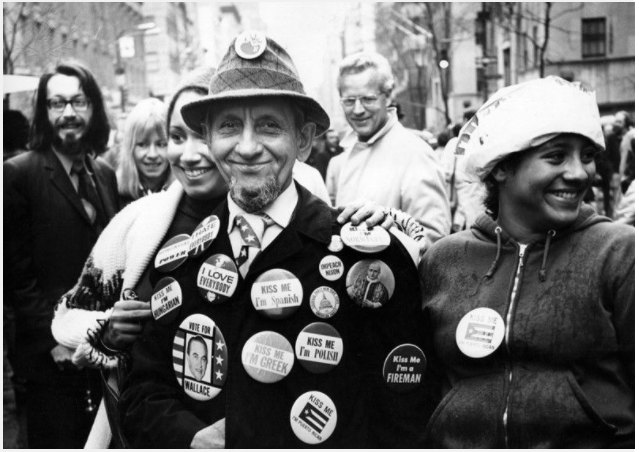Badge attitude

By Terry O’Sullivan
Have you joined the badgerati yet? Are you one of the growing number of people whose social media profiles, electronic resumes and even email signatures feature attractive little lozenges commemorating skills and accomplishments? I bet you’ll have got one by the end of the year if you haven’t already.
Digital badges celebrate great things. I notice ‘mental health first aider’ is a popular one on email signatures. Seeing it cheers me up that it’s becoming more acceptable to acknowledge mental health as something that affects everyone. I must find out how to get one of those. One of the nice things about badges is that they send a message that skills are cool. Good news for educators everywhere.
The Open University has been a pioneer in digital badging since the first Badged Open Courses appeared on OpenLearn in 2015. Today you can take your pick from more than 70 of them on topics like mentoring, critical thinking and becoming an Open University student (a badge worth having). Over 200,000 elegantly hexagonal OpenLearn badges have been earned to date.
Badges aren’t just a pretty face, though. The advantage of being digital is that they carry information about what they’re for, who has awarded them and who they belong to. The term for this is ‘baked in’, which makes them sound more like biscuits than badges. It underlines the durability of the data. This makes badges eminently mix-and-matchable into customised credentials as unique as you are.

CREDIT Peter Keegan / Hulton Archive / Getty Images / Universal Images Group Rights Managed / For Education Use Only
My interest in badges dates from a couple of years ago. My colleagues and I had been wrestling with how to get students on an online module to engage more fully with their learning activities. These don’t carry any credit, but they build towards assignments which do. Moreover, they develop valuable skills supporting the OU Employability Framework. Research suggests badges motivate student ‘co-curricular activity’, like volunteering or getting involved in student organisations (Coleman, 2018). Perhaps a badge for skills development within the module would encourage my students to go the extra mile and really commit to the activities. The B206 Badging Employability Pilot project was born – taking badging into the realms of a credit-bearing module, building on the great work already going on within non-accredited learning on OpenLearn.
With my colleague Dr Carmen Mal as co-investigator I applied to SCiLAB, the Faculty of Business and Law’s scholarship centre, for the cost of five days’ project assistance and a basic subscription to an external badging platform, Open Badge Factory. I chose an external provider to avoid confusion with OpenLearn (as this was a pilot project). To earn a badge students had to write brief reflections on learning activities that helped them develop any five of the ten elements of the OU Employability Framework. The module introduces a reflective assignment early on. The FutureYOU tool (which provides a reflection template for learning activities) was already available to students.
We worked with some amazingly creative colleagues in Learner and Discovery Services to design the badge graphic and make a souped-up version of the relevant FutureYOU page so that the student reflections could be seen by a verifier (the project assistant) and badges issued as appropriate. I also found some more amazingly creative colleagues in Learning Experience and Technology to help close the loop to and from Open Badge Factory. Scholarship is a great way of meeting people.
Students were emailed a link to a ‘how to video’ I’d made on my computer, as well as brief instructions. We waited to see what happened. After three months the badge offer finished and I ran an evaluation survey. Top line figures demonstrate that 6% of respondents had earned the badge, which was encouraging. Less happily 70% hadn’t heard of the offer – I guess students get a lot of emails. But while news of this particular badge only reached the minority, two thirds of respondents were keen on the idea of earning digital badges in connection with Open University modules in future.
So don’t be surprised if your students start badgering you for badges soon.
This blog represents the views of the individuals, not SCiLAB or the Open University.
Reference
- Coleman, Jonathan D. (2018) ‘Engaging undergraduate students in a co-curricular digital badging platform’, Education and Information Technologies, Vol.23 No. 1, pp.211-224

Dr Terry O’Sullivan
Department of Strategy and Marketing, Faculty of Business and Law, The Open University (retired)

